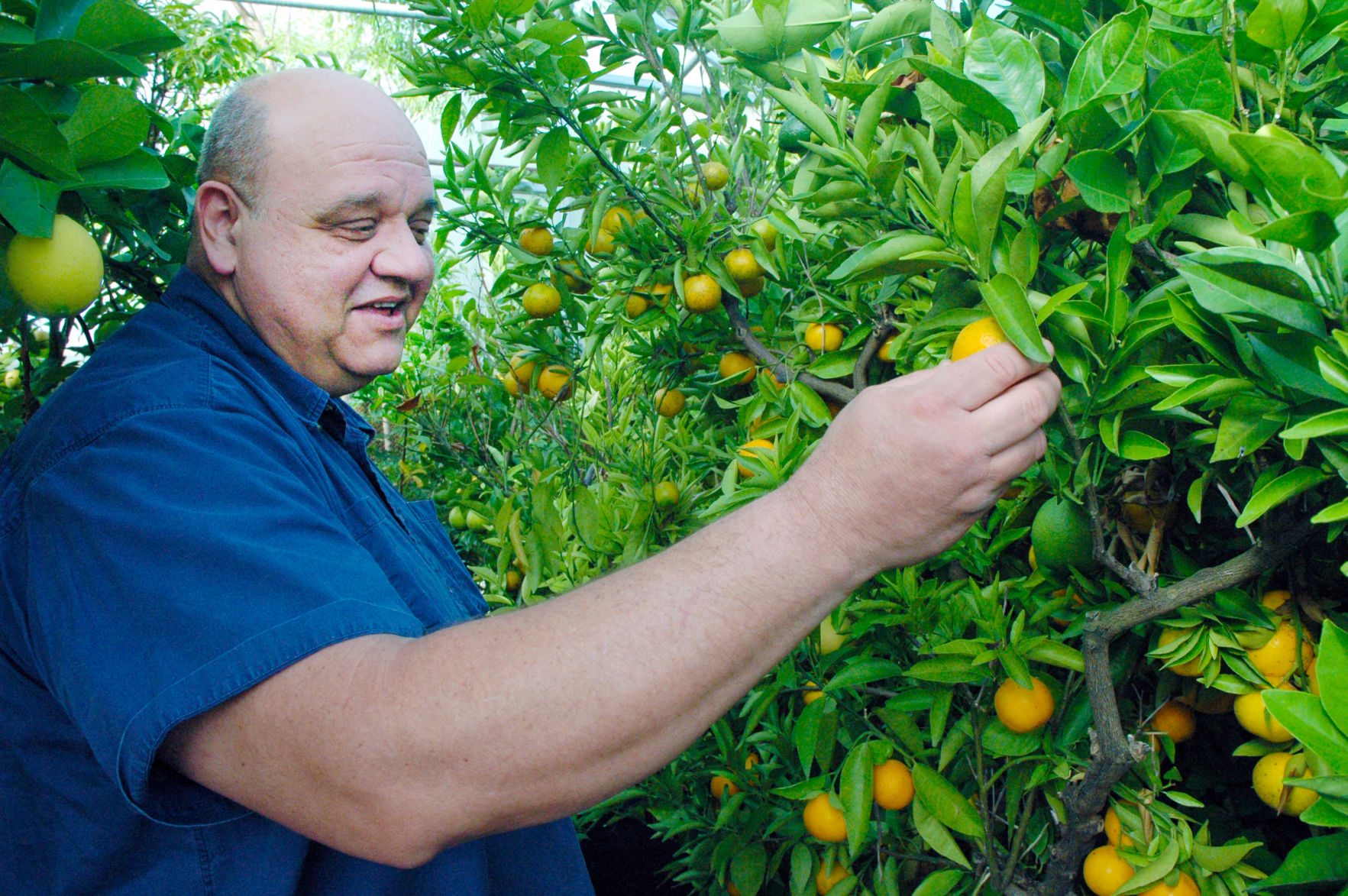In the dead of Missouri winter, members of a southwestern Missouri family pluck lemons, oranges and grapefruits from trees in their greenhouse.
Lee Allphin and son Jim enjoy the steady supply of flavorful fruits and vegetables from their orchard, garden and greenhouse, says Robert Balek, a University of Missouri Extension horticulturist. Flowers and herbs add beauty and fragrance to their greenhouse long after the rose garden’s last rose has bloomed.
Balek met the Allphins last fall at an area farmers market. The Allphins told Balek they had too many apples for their family and needed to find a place to sell them during peak season.
Eileen Nichols, manager of the Webb City Farmers Market, told Balek that their market was in desperate need of an apple vendor. Webb City Farmers Market operates with cooperation from MU Extension, Lincoln University and others.
When the Allphins said they had too many apples for their family, they didn’t mean just a bushel and a peck. It was a bumper crop. The senior Allphin is the oldest of 10 children, has 10 children and son Jim has 10 children. They keep apples in cold storage, press their own cider, can applesauce and freeze-dry apples for later use.
“We’re not in the apple business, but we enjoy sharing,” Jim says. “We have wonderful excess.” They sold more than a ton of apples last fall through the market.
Jim says he told shoppers at the farmers market that if they tasted his apples they would be back for more. And, he says, they were, often returning the following week to report that they were the best apples they had ever eaten.
“It was neat to get their feedback,” Jim says. He also enjoys the opportunity to give shoppers a risk-free way to try new flavors and varieties.
Many vendors find sampling improves sales, educates customers and connects buyers with their food source, Balek says. Jim completed food safety training through the farmers market, MU Extension and Lincoln University. The training is required before vendors can offer samples at farmers markets.
He likes to tell consumers how their food grows so they can make educated food-buying decisions. Many ask if his apples are organic. They are not, he explains, because they spray their trees to prevent worms, fungus and black spots on the fruit.
The Allphins rely on MU Extension online resources and follow recommended spray schedules for the orchard. Lee, who has a degree in chemistry, says MU Extension’s research-based information has been invaluable in the orchard operation.
The original Allphin orchard had five rows of 10 trees. Through the years, the Allphins added new varieties, including a family favorite, Pink Lady. Trees produce about 10 bushels each annually. Varieties ripen at staggered times, giving the family new taste treats throughout the fall. A family member who is a horticulturist helps them choose varieties and offers tips on how to keep the orchard healthy and productive. They hire seasonal help for pruning and picking as needed.
There are also about 20 peach trees, six plum trees and sweet and sour cherry trees. Multitudes of rose bushes adorn their stately hilltop home. Their large garden produces vegetables for daily use, canning and freezing.
When temperatures begin to chill, the Allphins move potted citrus plants such as sweet lemons, oranges and grapefruits inside a large glass greenhouse. They also grow bananas, pineapples, mandarins and herbs, as well as flowers, tomatoes and cucumbers. They hope to put up a high tunnel greenhouse to lengthen the growing season for vegetables.
Meat, poultry and eggs also come from the farm. “We believe in being self-sufficient,” Jim says. “We like to take care of ourselves and others.”

